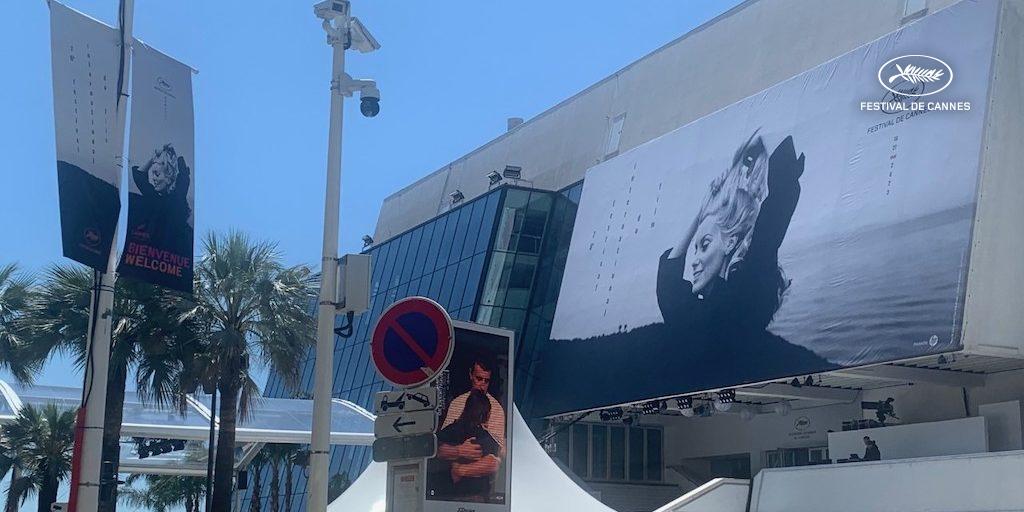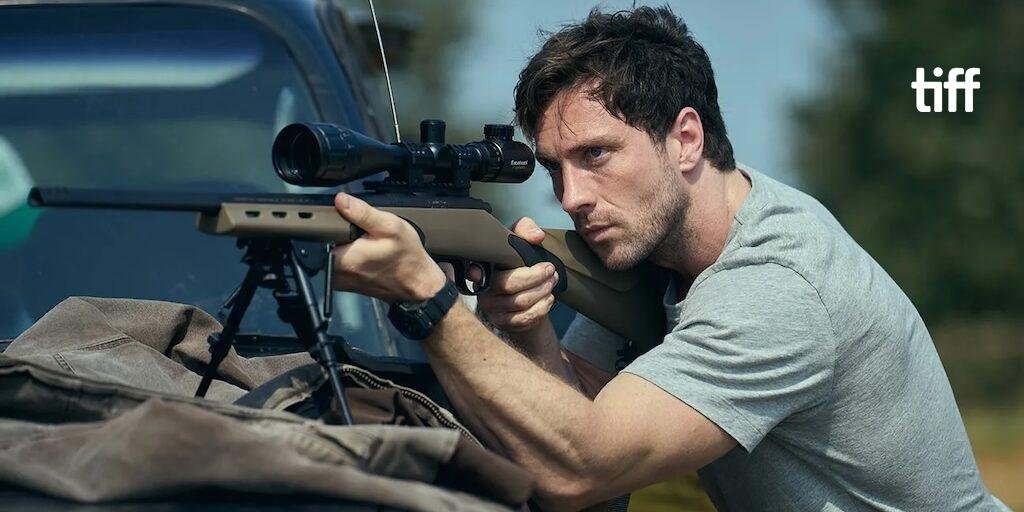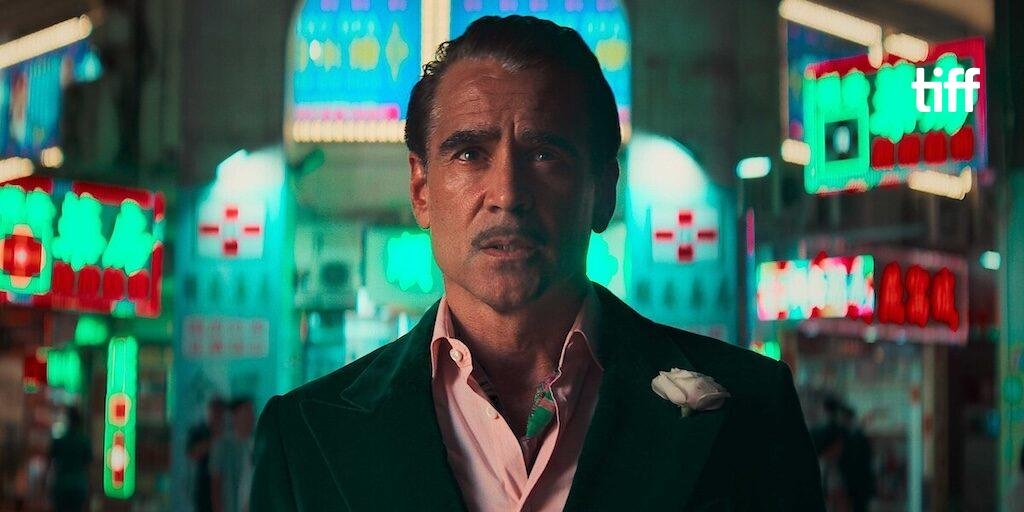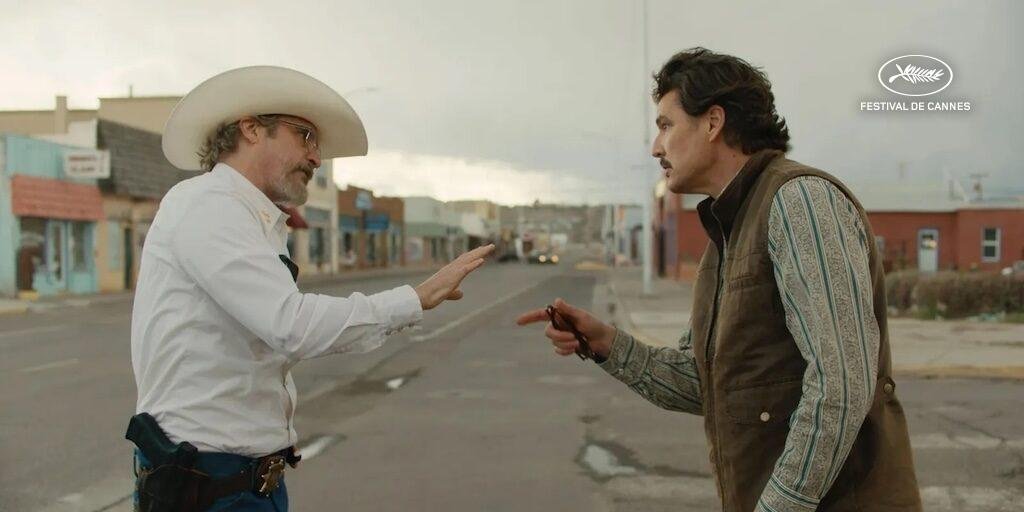After almost twenty years of coming to Cannes, it was not until this year that I understood the mystery of the Festival’s disappointing openings, something that seems to be repeating with every edition. Because it turns out there is an unwritten law that guarantees the opening film must be released that very day on French theaters. Thierry Fremaux said so at the Press Conference announcing the 76th edition back in April and placing this norm, a decisive gamble for theatrical releases, against that of Venice, which last year’s edition opened with Noah Baumbach’s White Noise, a film that practically was not possible to see in theaters and was released on Netflix three months later. This explains a lot of things, in particular that Cannes perseveres year after year with rather dubious choices that, luckily, have little to do with the rest of the festival. It is all for the greater good (or survival) of the theaters, especially the French ones, to whom these releases are destined for and only can be understood from a very local perspective.
For instance, is Maïwenn someone outside of France? Or someone outside of Cannes for that matter? Because her films seem to be consubstantial to the festival, seasonal products that do not have any sense outside the context of the festival, at least for those of us who come from foreign lands and do not perceive her success among the local audiences. Several of her films were presented at Cannes, and one of those incomprehensible gambles made this year by the festival has taken the form of the opening film, Jeanne du Barry, the portrayal of an historical character already dealt with in cinema (by, among many others, Ernst Lubitsch in his German era, but there is no need to draw blood upon this). But as all films by Maïwenn, it is more about her ego than of the subject matter she deals with and Jeanne du Barry tells us more about the director and actress than of Louis the XV’s mistress, decapitated by the French revolution. A more shallow film rather than light-hearted, which sometimes is a mere succession of vignettes and some other times has a dangerous inclination to fall into self-parody until reaching a resolution where it gives in to solemnity. If there is something that burdens Jeanne du Barry from the get go is its miscasting, starting by Maïwenn herself, which is hard to recognize as that young woman capable of capturing everybody’s hearts in Paris, continuing with an inexpressive Johnny Depp and concluding with Paul Greggory or Noémie Lvovsky reduced to mere background roles. If something stands out, Jeanne’s gynecological check before getting into the King’s bed could set the tone of a film that works better as a (involuntary) comedy than as the romantic drama its solemn voice-over is trying to sell us.
La Règne animal, the film that opened the Un Certain Regard section, has no international stars in its cast, but is a much more solid, much more serious film. Thomas Cailley illustrates a dystopia in which a disease has spread all over the world and provoked a mutation in their victims that slowly turns them into animals. The sick are confined in specialized centers, away from the eyes of those who have not been infected. Among them, a father (Romain Duris) and his son, that move to a town near the center where the mother was inducted, since she has been adopting the form of a bear. That is the backstory, since La Règne animal wants to be a lot of things, perhaps too many, as if it does not fully integrate the Cronenberg-esque fantastic (the symptoms of the disease the son begins to feel and is rapidly mutating his body) with a much more naturalist tone that particularly affects the father’s relationship with a local police officer (Adèle Exarchopoulos).
French cinema ends up cornering everything at the openings of Cannes’ different sections. And if Cailley’s film is a very ambitious production, Ama Gloria, first solo feature by Marie Amachoukeli which opened the Critic’s Week, is quite the opposite: an intimate story about the relationship between a six-year-old girl, Cléo, and her capeverdean master, Gloria, with which she maintains a very tight relationship. So much that Cléo goes along with Gloria when she has to return to Cape Verde to attend her mother’s funeral and to meet her granddaughter, which will provoke Cléo’s jealousy. I do not know if Amachoukeli’s film was influenced by Carla Simón’s Summer 1993 or if every film about childhood, other than tackling the same issues, end up resembling each other so much. Actually, with its evocative tone, in which animations play a major part by functioning as both ellipses and interludes, one could say that Ama Gloria is also a gamble from this festival section on a cinema that is as beautiful as it is ephemeral represented by the great success of last year’s edition that was Aftersun.
Finally, the Directors’ Fortnight was inaugurated with the fourth French film, Cédric Kahn’s Le Procès Goldman, in what is perhaps the most atypical inauguration I remember in recent years. I say so because Kahn’s film is as dry as it is rough: the reconstruction of the second trial held against Pierre Goldman in 1976 to revise the case for which he received a life sentence. Goldman was a far left activist, participating in Latin American guerillas, later turned into a common thief that had to pull robberies to make ends meet. It was on account of this latter fame, but perhaps also because of his political past, that he was accused with the double murder of two pharmacists, a crime of which he always pleaded innocence (unlike the robberies). With Simone Signoret and Regis Debray in the audience, the trial concentrated all the media attention back in its day, but paradoxically Kahn reconstructs it in a very austere manner, almost without leaving the courtroom, without any kind of melodramatic or deceivingly emotive effect: there is no music or unexpected plot twists, neither are the judiciary dynamics to which American cinema has accustomed us, because in this trial everyone seems able to talk and interrupt: judges, prosecutors, attorneys, witnesses and the accused at the very center of this debate. It is definitely a more straubian film than it seems, even though it is so more in spirit than it is in form. However, the new director of the Fortnight, Julien Rejl, set himself to change the course of the section, by “reclaiming the original spirit” of its 1969 origins with, among many other things, two decisions that seem highly hopeful: renounce to films rejected for the Official Competition (he has come to say that if a movie aspires to the Official Competition, it does not belong in the Directors’ Fortnight) and to stand away from movies formatted at forums and laboratories. Le Procès Goldman may not be the flashiest of all inaugurations, but is without a doubt a slammed fist on the table, a gesture that makes us have high hopes for the future of the Fortnight.





